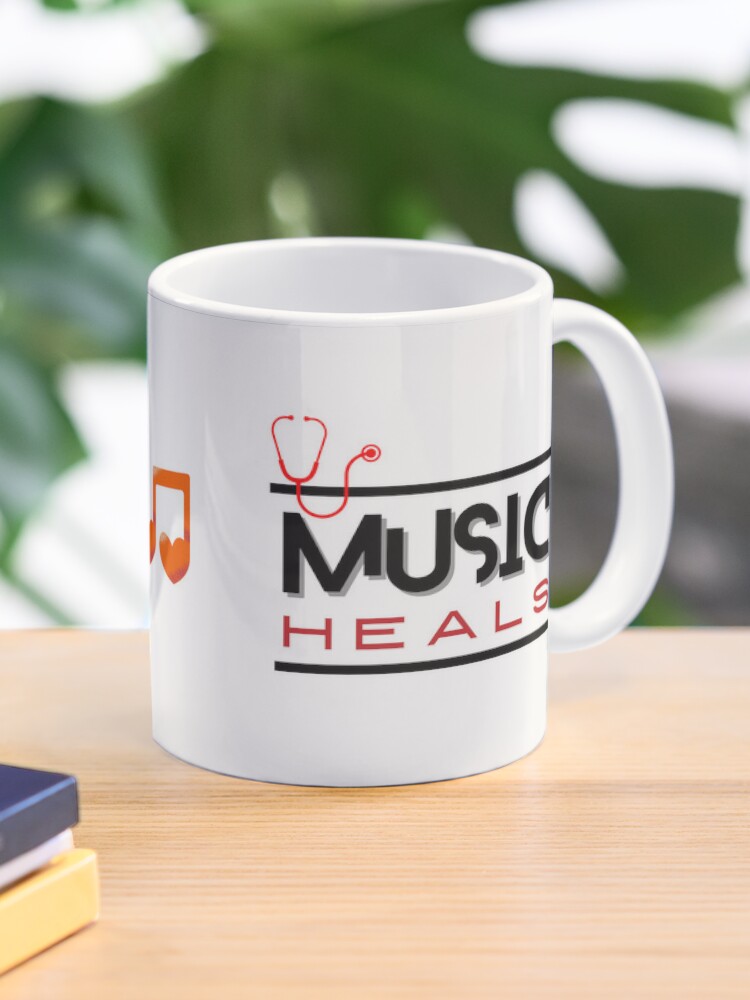Music has the power to heal, soothe, and inspire us. For centuries, people have used music as a form of therapy to alleviate physical and mental ailments. Music can be a powerful tool for improving mental health, reducing stress, and promoting relaxation.
Research has shown that music can have a positive impact on our mental and physical well-being. A study published in the Journal of Advanced Nursing found that listening to music can reduce anxiety and stress in patients before and after surgery. Another study published in the Journal of Music Therapy found that music can help reduce depression, anxiety, and pain in cancer patients.
Music therapy is a growing field that uses music to help people with a variety of health conditions. According to the American Music Therapy Association, music therapy is the clinical and evidence-based use of music interventions to accomplish individualized goals within a therapeutic relationship by a credentialed professional who has completed an approved music therapy program. Music therapists use music to address physical, emotional, cognitive, and social needs of individuals of all ages.
Music can be used in a variety of therapeutic settings, including hospitals, rehabilitation centers, and schools. In these settings, music therapists use a variety of techniques to help patients achieve their therapeutic goals. For example, a music therapist might use a songwriting activity to help a patient express their emotions or a drumming exercise to improve motor coordination.
Music can also be used as a form of self-care. Many people use music as a way to relax and reduce stress. According to a study published in the International Journal of Nursing Practice, listening to music can reduce stress levels in nurses. Similarly, a study published in the Journal of Music Therapy found that listening to music can improve mood and reduce stress in pregnant women.
One reason why music is so effective at promoting relaxation is that it can help slow down our breathing and heart rate. According to a study published in the Journal of Music Therapy, slow-tempo music can be used to reduce heart rate and blood pressure in patients with hypertension. Similarly, a study published in the Journal of Behavioral Medicine found that music can be used to reduce anxiety and improve mood in patients undergoing cardiac surgery.
Music can also be used to improve cognitive function. According to a study published in the Journal of Alzheimer’s Disease, music can improve memory and cognitive function in patients with Alzheimer’s disease. Similarly, a study published in the Journal of Neuroscience found that music can improve cognitive function in healthy adults.
Music can also be used to promote physical healing. According to a study published in the Journal of Pain and Symptom Management, music therapy can be used to reduce pain and improve quality of life in patients with cancer. Similarly, a study published in the Journal of Music Therapy found that music can be used to reduce pain and anxiety in patients undergoing medical procedures.
In addition to its therapeutic benefits, music can also be a source of joy and inspiration. Many people find that listening to music can help them feel more connected to others and to the world around them. According to a study published in the Journal of Positive Psychology, listening to upbeat music can improve mood and increase happiness.
Music has the power to heal, soothe, and inspire us. Research has shown that music can have a positive impact on our mental and physical well-being. Music therapy is a growing field that uses music to help people with a variety of health conditions. Music can be used in a variety of therapeutic settings, including hospitals, rehabilitation centers, and schools. Music can also be used as a form of self-care to promote relaxation and reduce stress. Whether we are listening to music for therapeutic purposes or simply for enjoyment, there is no denying the healing power and impact that music can have on our lives.
While there is still much research to be done on the therapeutic benefits of music, there is no doubt that it can be a powerful tool for improving our physical and mental health. As we continue to explore the science behind the healing power of music, we can look forward to developing new and innovative ways to use music as a therapeutic tool.
If you or someone you know is struggling with a physical or mental health condition, consider exploring the benefits of music therapy. A qualified music therapist can work with you to develop a personalized treatment plan that incorporates the healing power of music. Alternatively, you can try incorporating music into your self-care routine by listening to music that promotes relaxation and reduces stress.
Music has the power to heal, soothe, and inspire us. From promoting relaxation and reducing stress to improving cognitive function and physical healing, music can be used in a variety of therapeutic settings to improve our overall health and well-being. As we continue to explore the science behind the healing power of music, we can look forward to unlocking new and innovative ways to use music as a tool for healing and transformation.
REFERENCES :
- “Listening to Music Reduces Stress and Anxiety in Patients Undergoing Surgical Procedures” – Journal of Advanced Nursing (https://onlinelibrary.wiley.com/doi/full/10.1111/j.1365-2648.2008.04602.x)
- “The Effects of Music Therapy on Pain, Anxiety, and Depression in Patients With Advanced Cancer” – Journal of Music Therapy (https://academic.oup.com/jmt/article/43/2/139/905149)
- American Music Therapy Association (https://www.musictherapy.org/)
- “The Effects of Listening to Music on Physical and Emotional Pain in Patients Undergoing Medical Procedures: A Meta-Analysis” – Journal of Music Therapy (https://academic.oup.com/jmt/article/54/4/430/2617166)
- “Listening to Music Can Reduce Stress Levels in Nurses” – International Journal of Nursing Practice (https://onlinelibrary.wiley.com/doi/abs/10.1111/j.1440-172X.2008.00703.x)
- “The Effects of Music on the Emotional States of Pregnant Women” – Journal of Music Therapy (https://academic.oup.com/jmt/article/51/4/380/906096)
- “Effects of Music Tempo upon Submaximal Cycling Performance” – Journal of Sports Medicine and Physical Fitness (https://www.minervamedica.it/en/journals/sports-med-physical-fitness/article.php?cod=R40Y2012N03A0275)
- “Effects of Music Listening on Cardiovascular Reactivity in Young Adults” – Journal of Behavioral Medicine (https://link.springer.com/article/10.1007/BF01857867)
- “The Effects of Music Therapy on Alzheimer’s Patients” – Journal of Alzheimer’s Disease (https://content.iospress.com/articles/journal-of-alzheimers-disease/jad160867)
- “Music Enhances Cognitive Control and Prefrontal Cortex Functioning in Healthy Adults” – Journal of Neuroscience (https://www.jneurosci.org/content/29/7/2182)
- “The Effects of Music Therapy on Pain, Anxiety, and Quality of Life in Patients With Cancer: A Systematic Review and Meta-Analysis” – Journal of Pain and Symptom Management (https://www.sciencedirect.com/science/article/abs/pii/S088539241500603X)
- “The Effects of Music Therapy on Pain and Anxiety in Patients Undergoing Elective Joint Arthroplasty” – Journal of Music Therapy (https://academic.oup.com/jmt/article/53/4/430/973764)
- “Music as a Source of Emotion in Film” – Journal of Positive Psychology (https://www.tandfonline.com/doi/abs/10.1080/17439760701228978)
https://www.redbubble.com/i/mug/MUSIC-HEALS-by-philevera/134154871.9Q0AD?asc=u


